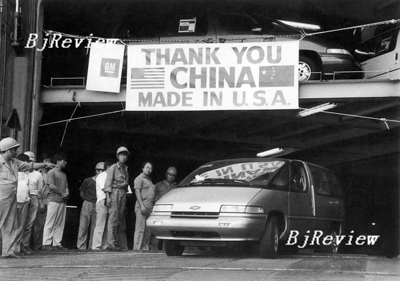
As the second round of the high-level China-U.S. Strategic Economic Dialogue (SED) concluded in late May, relations between the two countries were symbolically steered toward a sensitive juncture. Trade frictions and deficit woes cannot be substantially resolved overnight and, in the ongoing wrangling that surrounds the bilateral relationship, bitter debates between, and beyond, China and the United States are a constant reminder of the need for cool heads and long-term approaches. Chinese academicians, Zhou Qing'an, researcher with the Center for International Communication Studies of Tsinghua University, and Professor Pang Zhongying at the International Studies School of Renmin University of China share their thoughts about this situation below (in sequence).
Joined at the Hip
When the second round of SED opened in Washington, DC, a two-day meeting co-chaired by Chinese Vice Premier Wu Yi and U.S. Treasury Secretary Henry Paulson, the mass media did not expect any breakthroughs. They understood that this dialogue was part of a bureaucratic process and was under no illusions. What is seldom noticed is that the Mutually Assured Destruction (MAD) doctrine, which was used to balance power between the Soviet Union and the U.S. during the Cold War, now has been shifted to China and the United States in terms of bilateral economic relations.
From a trade point of view MAD reflects high economic interdependency between China and the United States. When losses occur to one, the other will be affected. China is a big creditor of the United States, since it buys U.S. treasury bonds in large numbers. This February, U.S. shares trembled when the Chinese stock market dived.
The economic MAD also, to some extent, reflects the inherent self-adjustment ability of the current global trading system. During the Cold War, because nuclear powers were mutually restrained, whenever they initiated attacks, they would firstly guarantee self-safety. In that case, either side, China or the United States, will be hurt in return if retaliatory tariffs or sanctions in favor of unilateral interests are imposed. Meanwhile, MAD reduces in-fighting risks under the current global trading framework.
Due to differences in development mode, trade pattern and economic status, there exist trade disputes between China and the United States, giving rise to arguments on China's economic policies on the U.S. side. For example, China adjusts its currency exchange rate step by step, while its U.S. counterpart is calling for a sharp appreciation of the yuan to curb the trade imbalances. In addition to yawning trade deficits, economic woes may be politicized by some Americans. Debates on this issue are a frequent feature at Congress and presidential candidates are continuously asked to provide solutions. Rising unemployment rates and dumping accusations exacerbate such conflicts.
|
